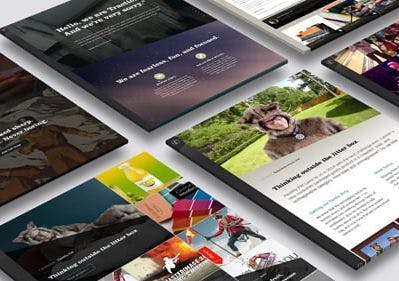Why are CMOs Dropping like Flies?
By Adam Kleinberg
A recent study from consultancy, Russell Reynolds Associates, shows that CMO turnover is higher than ever.
Why are CMOs dropping like flies?
This article was originally published in Ad Age .
In some industries, the trend is eye-popping — particularly in retail, where 48% of the top 30 retailers in the U.S. have had a change in marketing leadership in the last 12 months. Consumer tech, media, CPG and hospitality industries also had high levels of churn in the CMO hot seat.
What's more, 62% of companies replace their CMOs with someone from outside the company, a clear indicator that many CEOs don't believe anyone else who works at their companies has the answers either.
What the hell is going on?
Well, in interviews with a dozen CMOs and CEOs, Russell Reynolds concluded that there were eight distinct factors — but if I were pressed to summarize them, it would be "Digital, digital, digital, digital, digital, digital, digital, and CEOs making scapegoats out of CMOs to buy more time to deal with digital."
The business world today places intense demand for a quantifiable ROI on every dollar of marketing expenditure — and an overly optimistic expectation that digital will be able to deliver it.
What are we left with? Misaligned needs and expectations all over the place. Organizations look to marketing to deliver attributable short-term sales with little or no regard for long-term brand health.
That's not a recipe for long-term success. And I've got news for you: "Long-term" is only a year away.
As a marketer, you need to have a balanced view. Let's say you're a CPG marketer. If all you cared about was driving sales, you'd pour all your money into retail promotions — but you'd have invested absolutely nothing in changing the attitudes and perceptions that make people love your brand. Those sales would fall of a cliff the second you stopped promoting.
If you don't build brand while you drive sales, you're pouring ocean water into the sand.
One telling observation in the research is that in some categories, up to 90% of sales are influenced by the web, while 80% of purchases are actually made in a brick-and-mortar store. That insight implies we should be very thoughtful about the role of digital to influence, but not necessarily close the sale.
But many CMOs don't have a mandate to use digital thoughtfully. They are pressured to focus through a myopic lens.
In other words, in order to truly succeed they need to do their job in a different way than everyone else around them wants and expects them to. The net result? They either wind up with their head on the chopping block or say, "Screw this," and quit.
One telling statistic comes from a recent Salesforce report: 83% of marketers in organizations rated as "high performers" say their execs are completely committed to supporting their overall marketing strategy. That's compared to only 31% in low-performing marketing organizations. I'd venture to guess that a pretty high percentage of CMO turnover is coming from the low performers.
As someone who has run an agency for fifteen years, I learned the hard way long ago that if we don't set the right expectations, make sure stakeholders are in alignment with those expectations, and then deliver on them, we're going to lose that client a year down the road.
Before you can set the right expectations you need to make sure your client shares your point of view. That requires direct conversations to educate, and sometimes change mindsets. Sometimes that's hard. Clients hire us to help them be successful, not tell them what they already know — but changing perceptions is a difficult task. Difficult, but essential.
CMOs have clients too, nowadays. Strategy connects the dots between what you do and why you do it.
My advice? Make sure your clients understand the "what" and the "why."
----------
Photo by USGS Bee Inventory and Monitoring Lab from Beltsville, USA — Tabanus atratus, U, Face, MD_2013–08–21–16.06.31 ZS PMax. Uploaded by Jacopo Werther, CC BY 2.0, Creative Commons.
Yes, retail is about convenience, ease, and seamlessness, especially when it comes to categories associated with utility.

Traction's work for Lenovo has made the Shortlist in the 2015 IAB MIXX Awards!

We’ve spent the last 15 years developing a wide variety of web apps and experiences for our clients and we’ve always taking that knowledge and packed it into our own web experiences.
